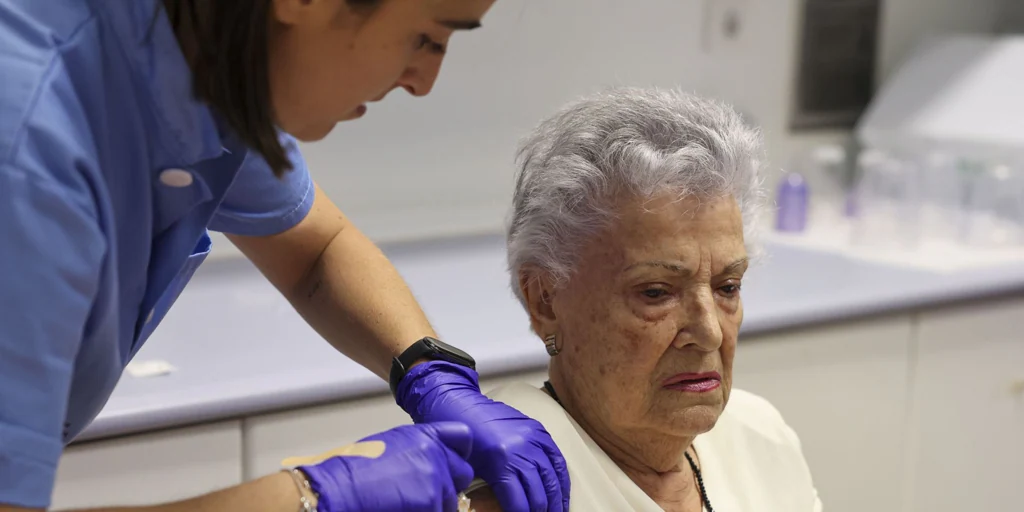Health care and communities prepare to avoid collapse due to flu and Covid-19

The Ministry of Health and the Autonomous Communities are already working on common criteria to prevent a repeat of the collapse of health centers and emergency hospitals due to respiratory infections, especially influenza and Covid-19, this year. Minister Mónica García assured that the Public Health Commission is working on a document containing general criteria to combat the season of respiratory infections, which will be observed at the Interterritorial Council of Health, uniting the Ministry and the Autonomous Regions, next Friday.
This document, according to García, is being prepared together with the Autonomous Communities in order to have common criteria that will serve to continuously assess the risk of respiratory infections and propose uniform measures. Thus, it will consist of “proposing indicators that will characterize the epidemiological situation of respiratory diseases, assessing their contagiousness and impact, establishing risk scenarios based on these indicators and proposing recommendations for each of these risk scenarios,” according to the minister.
The issue will be addressed at Friday’s meeting, the health minister said, with the intention that the autonomous communities will share the actions they are taking to “unite” them. This Monday, the Independent Center of Trade Unions and Civil Servants condemned that the vaccination campaign begins with a reduction of 15,000 jobs in the health sector, so it demanded more efforts from the ministry.
Monica García made this statement this Monday during the presentation of the vaccination campaign against influenza and Covid-19. The Ministry of Health proposed this season to achieve vaccination coverage of 75% of people over 60 years of age and 60% of pregnant women and people at risk of the disease, the minister said.
As last year, this season simultaneous vaccination against influenza and Covid-19 is again recommended for people over 60 years of age; people in disability centers, nursing homes and closed institutions; over 12 years of age with risk conditions such as diabetes, chronic cardiovascular disease or cancer; pregnant women and those living with people who are highly immunosuppressed. Also for employees of health and social protection centers, as well as for state security forces and corps. In addition to these cases, it is also advisable to immunize against influenza children aged 6 months to 5 years, smokers or people with celiac disease, as well as workers in kindergartens and early childhood education centers.
Intranasal vaccine
This year, in addition, there will be an intranasal vaccine that some autonomous communities, such as Madrid, Andalusia or Galicia, will administer to children, although not all minors can receive it. “It can only be introduced from 24 months. Children aged 6 to 23 months should be vaccinated with the classic intramuscular vaccine,” explains Fernando Moraga-Llop, pediatrician and representative of the Spanish Association of Vaccinologists.
Moraga-Llop warns that the flu may not only be dangerous for older adults and people with chronic illnesses. “There are people who can be killed. Hospitalization rates in children under 4 years of age may be equal to or higher than in children over 65 years of age,” he insists. “The philosophy of the flu vaccine is to avoid complications as well as death,” he says.
